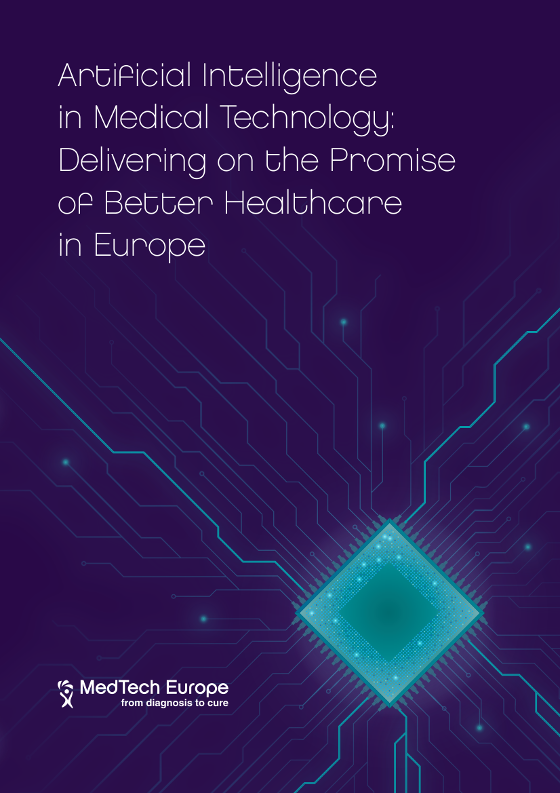 The medical technology industry welcomes the new European Commission's priority focus on Artificial Intelligence (AI). Our industry sees enormous potential of AI to make healthcare better and safer, improve access and outcomes, empower patients and citizens with information, and make healthcare delivery more efficient.
The medical technology industry welcomes the new European Commission's priority focus on Artificial Intelligence (AI). Our industry sees enormous potential of AI to make healthcare better and safer, improve access and outcomes, empower patients and citizens with information, and make healthcare delivery more efficient.
There are several challenges that impede the deployment of AI in healthcare. These include a fragmented data landscape that makes access to or sharing of data difficult, a lack of interoperability, and a shortage of incentives for data sharing. Legal, technical and social challenges present additional obstacles for the sharing and aggregation of data.
To overcome these challenges, MedTech Europe recommends specific policy actions, also in reference to those drafted by the High-Level Expert Group on AI (HLEG).
Download: Artificial Intelligence in MedTech: Delivering on the Promise of Better Healthcare in Europe (3.784 KB).
Download from eHealthNews.eu: Artificial Intelligence in MedTech: Delivering on the Promise of Better Healthcare in Europe (3.784 KB).
About MedTech Europe
MedTech Europe is the European trade association for the medical technology industry including diagnostics, medical devices and digital health. Our members are national, European and multinational companies as well as a network of national medical technology associations who research, develop, manufacture, distribute and supply health-related technologies, services and solutions.